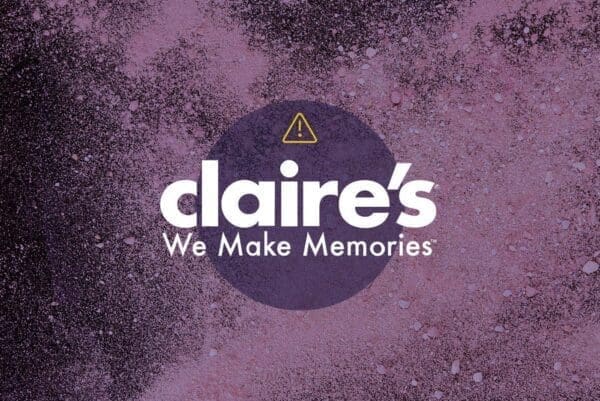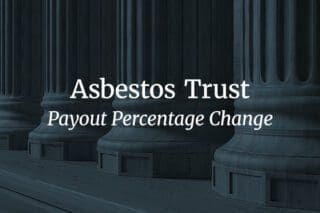
Popular tween store Claire’s has once again been found creating products for children that contain asbestos. The store first came under fire in 2017, when the U.S. Food and Drug Administration (FDA) confirmed the presence of the toxin in three Claire’s products, as well as several products from Justice, another tween and children’s store. At the time, Claire’s pulled the products from the shelves but denied all reports that asbestos had been found in their makeup. In a company statement, they reasoned, “All our powder-based cosmetics use the same base formulation, utilizing Merck certified asbestos-free talc, which is the same talc used in other well-known cosmetic brands.”
Now, Claire’s is facing backlash once more as the FDA announced asbestos was found in new makeup products made in collaboration with tween superstar JoJo Siwa.
Claire’s Recalls JoJo Siwa Makeup Kit
Last week, the FDA announced a recall on more Claire’s makeup after continued testing of the products. An announcement first came in March 2019, when the federal agency placed a recall on the following Claire’s products for containing asbestos:
- Claire’s Eye Shadows – Batch No/Lot No: 08/17
- Claire’s Compact Powder – Batch No/Lot No: 07/15
- Claire’s Contour Palette – Batch No/Lot No: 04/17
In their latest announcement, the FDA recalled two asbestos-contaminated makeup products, one from Claire’s and another from Beauty Plus:
- Beauty Plus Global Contour Effects Palette 2, Batch No. S1603002/PD-C1179
- Claire’s JoJo Siwa Makeup Set, SKU #888711136337, Batch/Lot No. S180109
Both retailers have already recalled the affected products, but any consumers who may have these makeups at home should immediately discontinue use and dispose of them.
Despite taking actions to remove the impacted products from shelves, Claire’s continues to stand by their products in light of this latest report and the reports from 2017. A spokesperson said, “Claire’s stands behind the safety of this item and all other Claire’s cosmetic items, as such small trace amounts are considered acceptable under European and Canadian cosmetic safety regulations. In addition, last year Claire’s moved to talc-free cosmetic manufacturing to prevent any further concerns about talc contamination. Claire’s also supports increased FDA oversight of personal care products. We will provide a full refund to any customers who purchased the product.”
In 2018, the company filed for bankruptcy among more reports of asbestos contamination. Though Claire’s was able to eliminate much of their debt, it’s unclear how these new reports will impact the stores.
Asbestos in Talc Continues to Be a Problem
The main culprit for asbestos-contaminated makeup is talc. In recent years, numerous talc products, including makeup and talcum powder, have been in the news over reports of asbestos contamination. The two minerals can naturally be found near each other when mined, making it easy for miners to accidentally disturb an asbestos deposit. Contaminated talc has been a health concern for decades with the FDA first developing more intensive safety standards in 1973. Following the emergence of reports of asbestos in new makeup products in 2017, the FDA has made a bigger effort to reevaluate their safety standards and testing in the cosmetic industry.
Despite the FDA’s efforts, advocates worry that the health concerns of asbestos exposure won’t be properly addressed anytime soon. In recent years, the toxin has been found in many products beyond talc, including children’s toys, but law agencies have been slow to do more to remove the mineral.
Most recently, the Environmental Protection Agency (EPA) announced a new asbestos rule meant to further govern the use of the mineral, though coming short of a full ban. The new rule expands the partial ban on asbestos products that was implemented in 1989. Products like adhesives, roof coatings, and cements will not be able to enter the country without EPA approval. Additionally, manufacturers must notify the agency at least 90 days prior to manufacture, importation, or processing of any products that may contain asbestos. While some have praised this new rule, many advocates claim it opens loopholes for new asbestos products to enter the country.
In light of these new reports of asbestos-contaminated makeup, more clearly needs to be done to protect the public from exposure, which can lead to diseases like mesothelioma and lung cancer. Without a full asbestos ban and proper removal of past uses of the toxin, exposure will be an ongoing danger across the country for people of all ages.




